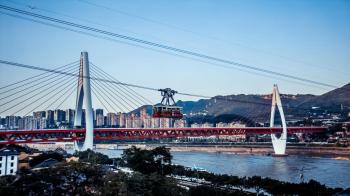But here’s the twist: the chaos isn’t just a hurdle—it’s a kind of art. Chinese businesses thrive in this unpredictability, weaving through economic shifts with the grace of a tightrope walker who’s also juggling flaming torches. They don’t just adapt; they reinvent. One day, they’re betting on AI-driven logistics, the next, they’re pivoting to eco-friendly packaging because the government gave a nod to sustainability. It’s like watching a magician pull a rabbit out of a hat, only the rabbit keeps changing into a parrot, then a panda, then a tiny dragon. You never know what’s coming next, but you can’t help but be mesmerized.
Competition in China isn’t a rivalry—it’s a full-blown Olympic event where every participant is sprinting in the same lane, dodging potholes and trying to outshine the guy with the neon-lit logo. It’s not just about selling a product; it’s about selling a story, a vibe, a *feeling*. A cup of tea isn’t just a drink—it’s a cultural experience, a nod to tradition, and a promise of loyalty. Foreign companies often stumble into this trap, thinking they can just drop a well-designed product into the market and watch the sales roll in. Spoiler alert: it’s more like dropping a pebble into a lake and hoping it creates a tsunami.
Regulation here feels like trying to navigate a maze built by a hyper-caffeinated architect. One minute, you’re celebrating a breakthrough, the next, you’re scrambling to rewrite your compliance strategy because the rules shifted mid-sentence. It’s like playing a game of Jenga where the blocks are labeled “Tax Breaks,” “Export Quotas,” and “Social Media Censorship.” The trick isn’t to avoid the rules but to become fluent in their ever-changing dialect. Some businesses thrive by treating regulations as a puzzle to solve, while others end up in a corporate version of a game of “hot potato” where no one wants to hold the liability.
Innovation here isn’t just encouraged—it’s a survival tactic. Chinese entrepreneurs don’t just follow trends; they create them, often in ways that leave the West scratching its head. Ever heard of a company selling “smart” rice cookers that adjust cooking times based on the weather? Or a startup that uses AI to predict the best time to buy a used car? It’s like the economy is a giant brainstorming session, and everyone’s invited. The result? A business landscape that’s as chaotic as it is brilliant, where the only constant is the need to stay one step ahead of the curve.
Cultural nuances add another layer to the mix, turning even the simplest interactions into a dance of subtlety. A handshake here might mean a promise, a nod could be a warning, and a “yes” might just be a polite way of saying “I’ll think about it.” Foreigners often walk into meetings expecting straightforward negotiations, only to find themselves deciphering a language of silence and subtle gestures. It’s like trying to read a book written in a language you’ve only heard in passing, but the characters keep changing. The key? Patience, observation, and a willingness to embrace the ambiguity.
Sustainability isn’t just a buzzword here—it’s a necessity. With China’s rapid growth comes a reckoning, and businesses are scrambling to balance profit with responsibility. Some companies are pioneering green initiatives, while others are caught in the middle, trying to look eco-friendly without actually changing their practices. It’s a bit like a restaurant trying to serve organic dishes but still using single-use plastics under the table. The result is a patchwork of progress, where the most forward-thinking businesses are leading the charge, and others are still debating whether the “eco” part is worth the effort.
And let’s not forget the human element—the heart of it all. Behind every spreadsheet, every policy, and every product launch is a team of people navigating this labyrinth with a mix of grit, humor, and sheer determination. There’s a joke floating around in Beijing that goes, “If you can’t read the tea leaves, you’re not fit to run a business here.” It’s a nod to the cultural obsession with subtle cues, but it also underscores the truth: in China, success isn’t just about what you say—it’s about what you *read* between the lines.
In the end, the Chinese economy is less a puzzle and more a symphony, with each business playing its own instrument in a chaotic yet harmonious melody. It’s a place where the unexpected is the norm, where adaptability is the currency, and where even the most seasoned players are constantly learning. For those who dare to dive in, the rewards are immense—but the journey? Well, it’s a wild ride that’s equal parts exhilarating and exhausting. Just don’t forget to bring a sense of humor, a thick skin, and maybe a few extra cups of tea.
Categories:
Every, Trying, Chinese, Businesses, Economy, Business, Rules, Language, Changing, Selling, Product, Others, Practices, Startup, Giant, Foreign, Thrive, Because, Rabbit, China, Cultural, Promise, Companies, Scrambling, Playing, Puzzle, Heard, Chaotic, Subtle, Still, Forget, Humor, Affects, Living, Breathing, Entity, Swing, Thriving, Cautionary, Overnight, Picture, Beijing,

Rate and Comment



